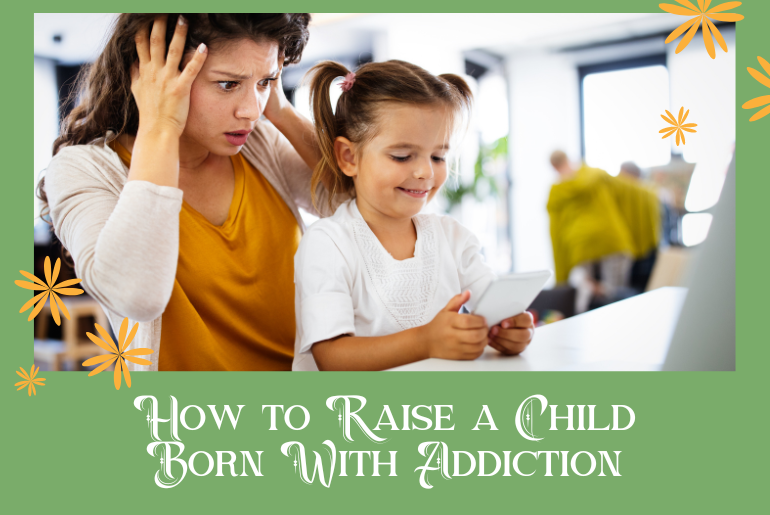As a parent, I’ve often wondered, “Why do parents raise their voices?” Let me be honest with you, it’s something I’ve grappled with myself, and it’s essential to understand the reasons behind this behavior. Yelling at our children is an instinctive response in many situations, but it is not always the most effective way to communicate or discipline.
In fact, there are several reasons why raising our voices may not be the best approach when it comes to parenting. Let’s explore the psychology behind why parents yell and discuss some of the potential negative consequences of this habit.
Reasons Parents Raise Their Voices
Let’s dive into some of the main reasons parents often find themselves raising their voices at their children, and how this seemingly natural reaction may not always be the best approach.

1. Stress and Overwhelm
Life as a parent can be incredibly stressful, and sometimes the pressure simply gets the best of us. When we’re overwhelmed by our own problems or day-to-day responsibilities, it can be difficult to maintain patience with our children, leading us to yell as a means of releasing pent-up emotions.
2. Lack of Better Communication Tools
Many parents may not have been taught more effective ways to communicate with their children, resorting to raising their voices as a default response. This often happens when we feel like our kids aren’t listening or understanding our message, and we become frustrated and resort to yelling to get our point across.
3. Learned Behavior from Our Own Upbringing
Our own upbringing plays a significant role in our parenting style. If we grew up with parents who often raised their voices, it’s not uncommon for us to unconsciously adopt a similar approach. We might not even be aware that we’re replicating the patterns we experienced as children.
4. Misconception of Assertiveness
Some parents mistakenly believe that raising their voices helps them assert authority and maintain control over their children. They might think that by yelling, they’re demonstrating that they’re serious about the rules or consequences when in reality, this method can be counterproductive.
5. Desperation to Gain Control
In situations where parents feel a lack of control, they may resort to raising their voices as a last-ditch effort to regain authority. This often occurs in moments of heightened emotion, where calm reasoning might seem ineffective or simply out of reach.
6. To Show Their Child That They Are in Charge
Some parents raise their voices in an attempt to assert dominance and demonstrate that they are in charge. They may believe that by doing so, they are reinforcing the parent-child hierarchy and setting clear boundaries for their kids to follow.
7. To Correct Bad Behavior
Parents might also resort to yelling as a way to correct bad behavior quickly and effectively. They may think that a raised voice will get their child’s attention and emphasize the seriousness of the situation, hoping to prompt an immediate change in behavior.
8. To Teach Their Child Self-Control
In some cases, parents raise their voices as a means to teach their child self-control. They might believe that by yelling, they are showing their child the importance of regulating their emotions and staying disciplined in difficult situations.
9. To Maintain Authority
Lastly, parents may yell as a way to maintain their authority within the family dynamic. They might perceive a raised voice as a necessary tool for enforcing rules, setting boundaries, and establishing consequences, especially when other forms of communication seem to have failed.
Why Raising Your Voice Is Bad for Kids
Now that we’ve seen possible reasons behind why parents might raise their voices, let’s discuss the potential negative consequences that yelling can have on our children.

1. Damages Self-Esteem
Frequent yelling can damage a child’s self-esteem, making them feel unloved, unworthy, or inadequate. When they are constantly subjected to raised voices, they may begin to internalize these negative emotions, which can have a lasting impact on their confidence and self-worth.
2. Creates Fear and Anxiety
Yelling at a child can create a sense of fear and anxiety, which may manifest in various ways, such as nervousness, sleep disturbances, or even physical symptoms like headaches and stomachaches. These feelings can disrupt a child’s emotional well-being and hinder their ability to thrive in different areas of life.
3. Impairs Communication
When parents consistently raise their voices, it can negatively affect the lines of communication between them and their children. Kids may begin to shut down or avoid conversations with their parents, fearing that they will be met with anger or hostility, which can result in a weakened parent-child relationship.
4. Encourages Aggressive Behavior
Children learn from their parent’s behavior, and if they regularly witness yelling, they may come to view aggression as an acceptable form of communication. As a result, they might adopt this approach in their own interactions, leading to problems in relationships with peers and authority figures.
5. Undermines Parental Authority
Ironically, while some parents may believe that raising their voice reinforces their authority, it can actually have the opposite effect. Frequent yelling can undermine a parent’s authority, as children may come to see this behavior as unpredictable, irrational, or out of control. In the long run, this can make it more difficult for parents to enforce rules and boundaries effectively.
How to Stop Yelling at Your Kids and Find Better Ways of Discipline
Now that we’ve acknowledged the potential harm caused by raising our voices, let’s explore some effective alternatives to yelling and learn how to discipline our children in a healthier, more constructive manner.

Practice Mindfulness and Self-Awareness
Becoming more mindful and self-aware can help you recognize when you’re about to raise your voice and intervene before it happens. By tuning into your emotions and bodily sensations, you can identify triggers and take a moment to pause, breathe, and calm yourself before responding to your child.
Develop Better Communication Skills
Invest time in learning and practicing more effective communication techniques. This can include active listening, empathetic responses, and expressing your thoughts and feelings calmly and assertively. By improving your communication skills, you’ll be better equipped to address conflicts or issues with your children without resorting to yelling.
Set Clear Expectations and Consequences
Establish clear expectations and consequences for your child’s behavior, and communicate these calmly and consistently. By doing so, you’re creating a framework of discipline that relies on understanding and mutual respect, rather than fear or intimidation.
Implement Time-Outs for Both Parent and Child
Time-outs aren’t just for kids; they can be beneficial for parents as well. When you feel your frustration levels rising, take a brief time-out to regain your composure. This also provides an opportunity to model healthy emotional regulation for your child.
Seek Support and Guidance
Don’t hesitate to seek support from friends, family, or parenting experts if you’re struggling to break the habit of yelling. They may be able to offer valuable advice, coping strategies, or even just a listening ear to help you navigate this challenge.
Acknowledge and Apologize for Mistakes
No parent is perfect, and there may be times when you find yourself raising your voice despite your best efforts. When this happens, acknowledge your mistake and apologize to your child. This not only helps repair any potential harm caused by the incident but also teaches your child the importance of taking responsibility for their actions.
FAQs
What are the main reasons why parents raise their voices?
The main reasons parents raise their voices include stress and overwhelm, lack of better communication tools, learned behavior from their own upbringing, the misconception of assertiveness, desperation to gain control, to show their child that they are in charge, to correct bad behavior, to teach their child self-control, and to maintain authority.
What are some alternatives to yelling at kids?
Some alternatives to yelling at kids include practicing mindfulness and self-awareness, developing better communication skills, setting clear expectations and consequences, implementing time-outs for both parent and child, seeking support and guidance from others, and acknowledging and apologizing for mistakes.
How does yelling affect a child’s self-esteem?
Yelling can negatively impact a child’s self-esteem by making them feel unloved, unworthy, or inadequate. Frequent exposure to raised voices may lead them to internalize these negative emotions, which can have long-lasting effects on their confidence and self-worth.
How can parents stay calm in the face of their child’s misbehavior?
Parents can stay calm in the face of their child’s misbehavior by practicing mindfulness and self-awareness, taking a brief time-out to regain composure, utilizing deep breathing or relaxation techniques, and focusing on effective communication to address the situation calmly and assertively.
What triggers a parent to raise their voice?
Triggers for a parent to raise their voice can include feeling overwhelmed or stressed, perceiving a lack of control in a situation, frustration due to a child’s disobedience or lack of understanding, learned behavior from the parent’s own upbringing, or a desire to assert authority and maintain control.
How can parents respond positively to their child’s behavior?
Parents can respond positively to their child’s behavior by using active listening, providing praise and encouragement for good behavior, offering constructive feedback, communicating calmly and assertively, and setting clear expectations and consequences for actions. Additionally, modeling appropriate behavior and emotional regulation can help children learn by example.
What are the long-term effects of yelling at children?
Long-term effects of yelling at children can include damage to their self-esteem, increased fear, and anxiety, impaired communication with parents, development of aggressive behavior, and undermining of parental authority. These effects can result in emotional, social, and behavioral issues that persist into adolescence and adulthood.
How can parents teach their children self-regulation skills?
Parents can teach their children self-regulation skills by modeling appropriate emotional regulation, discussing emotions and their causes, encouraging problem-solving skills, providing opportunities for children to practice self-control, and offering praise and reinforcement for successfully managing emotions and behavior.
How can parents help their children develop empathy?
To help their children develop empathy, parents can model empathetic behavior, encourage perspective-taking and active listening, engage in open discussions about feelings, teach their children to recognize and understand emotions in others and promote acts of kindness and compassion towards others.
What strategies can parents use to address their child’s problem behaviors?
Parents can address their child’s problem behaviors by establishing clear expectations and consequences, using consistent and fair discipline, engaging in open communication, focusing on the behavior rather than the child’s character, implementing time-outs or other appropriate consequences, and seeking support from parenting experts or counselors when needed.
Wrapping Up
Understanding the reasons why parents raise their voices is crucial to breaking the habit of yelling and adopting healthier, more effective parenting techniques. By recognizing the potential harm caused by raising our voices, we can work on developing better communication skills, setting clear expectations, and modeling emotional regulation for our children. With patience, perseverance, and self-awareness, we can create a nurturing and supportive environment that fosters a strong parent-child bond, allowing our children to thrive both emotionally and behaviorally.

Dedicated father, an accomplished psychologist, and an experienced educationist. With a passion for guiding parents on the rewarding journey of raising children, I am the perfect companion for all your parenting needs. My insightful and practical advice, coupled with my wealth of experience, makes me the go-to expert for all matters related to parenting. Follow this blog for a glimpse into the world of effective parenting and learn how to navigate the ups and downs of this beautiful journey with confidence and grace.




